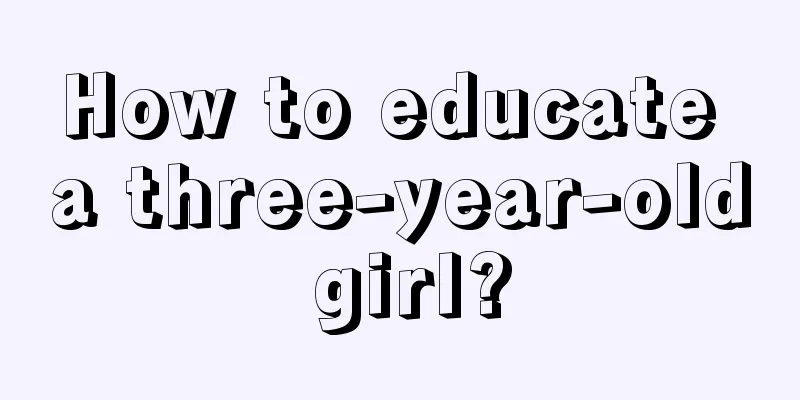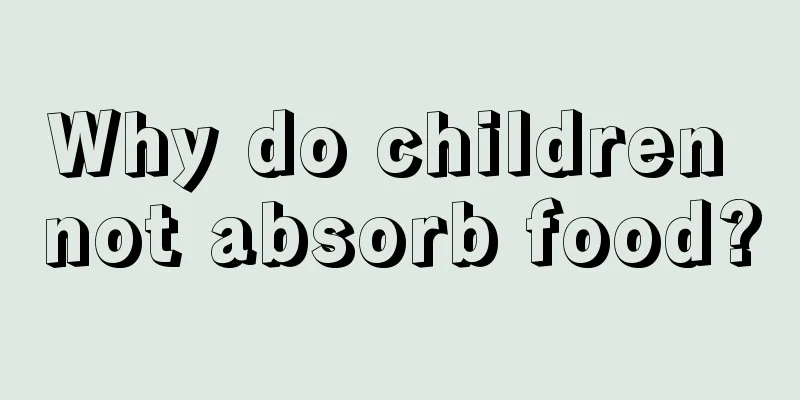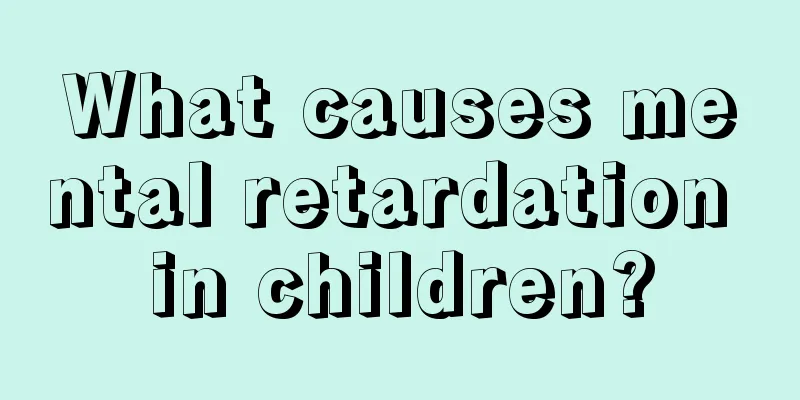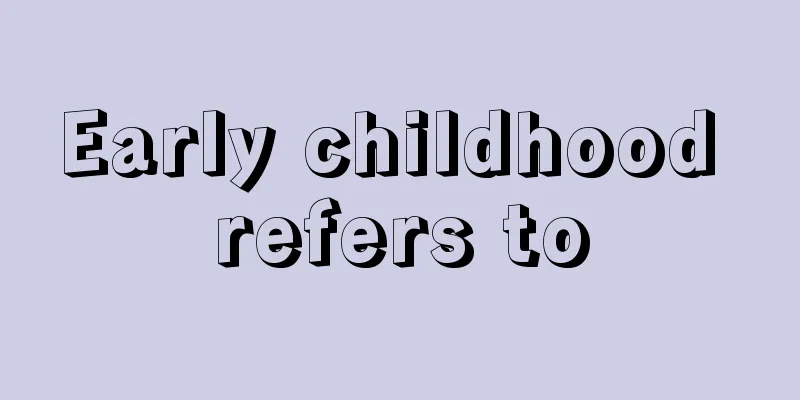How to educate a three-year-old girl?

|
Three years old is an important period for a baby's psychological development. Most parents do not understand the characteristics of their child's mental development and often stifle their baby's potential, which ultimately affects the baby's health. In fact, during this period, the baby's thoughts, mind, psychology, and personality are all important for maturity. Therefore, parents must be attentive when taking care of their babies. So how to educate a three-year-old girl? IQ education for three-year-old babies Educational method for three-year-old babies: Early reading: read a story with him every day, use the big dog Cowley at home, or buy some story books with pictures as the main feature. The story should be short and concise. When telling the story, be sure to add some adjectives or idioms to enrich his language skills. Tell him a story and ask him to retell it, or let him make up his own story by looking at the pictures. No matter what he makes up, encourage him to continue, and help him make up the story at the beginning. Role-playing games: Play games with him such as seeing a doctor, playing house, shopping at Carrefour, police catching bad guys, etc. Make up the game content yourself to make it a little richer. You and your baby each play a role, such as in a doctor's visit game, one plays the doctor and the other plays the patient. Teach him to pay attention to the roles he plays. Increase knowledge: You can increase his knowledge through anything you see on the road, such as the names of various animals, plants and buildings, the uses of various shops, and tell him some astronomy knowledge by looking at the sky. In line with kindergarten curriculum: review the nursery rhymes, Tang poems and English words learned. Emotional intelligence education for three-year-olds Cultivation of qualities: Take some time every day to chat with him, let him talk about his life in kindergarten, and then instill some good moral qualities. It can also be instilled through reading stories. After a story is told, use simple words to summarize the good qualities embodied in the story. Repeat constantly to strengthen the impression. Cultivate love and compassion: Take every opportunity to instill in him the need to have love, to care for others, and to sympathize with the weak. You can read this in a growth diary on the baby’s homepage titled “Cultivation of Love”. For example, when Xiao Guo asked me for clothes, he told me the story of the child. He was only one year old, and his mother didn’t want him anymore and left. I told him the story of the child and asked him to give the package of clothes to Xiao Guo himself. When you see beggars on the street, you can tell them that they are very pitiful. You can also ask him to love animals and plants. Cultivate independence and autonomy: Let him do his own things and provide him with opportunities to decide some things. For example, when it comes to dressing, give him two sets of clothes and let him choose the one he likes; when going out to play, let him choose where to play. Normally he wants to do things on his own, so try not to refuse. If you have to refuse, you need to tell him the reason and affirm his enthusiasm. Focus on appreciation education: give more praise and encouragement. Don't hit your children, that is the most hurtful thing to their hearts. Don't use foul language and set a good example. Three-year-old baby's independence When children are two or three years old, their initial self-concept emerges, and they begin to show self-independence intentions such as "give me", "I want", "I can", and "I can do it myself". If the children's independent activity demands are met and supported by adults at this time, they will begin to establish self-affirmation emotions. Otherwise, they are likely to produce withdrawal behaviors. Most activities, including learning, are new and interesting to young children, so how does aversion to learning arise? This is most likely because adults like to use "simple commands", which makes children easily develop opposition or disgust towards labor and learning. American psychologists conducted a long-term follow-up observation on 1,500 children and found after 30 years that 20% of them had not achieved any achievements. When compared with the top 20% of achievers, the most significant difference was not in intelligence but in personality traits. High achievers are people with personality traits such as perseverance, independence and courage. It can be seen how important a child’s independent character is to his growth and success. Independence refers to a person's ability to analyze and solve problems independently. It is an essential psychological quality for social survival and creative activities. Early childhood education experts point out that the essence of survival education is to cultivate independence, including independent consciousness and independent ability, with a focus on cultivating the ability to take care of oneself. The cultivation of independence must start from an early age. First, the demand is to “break free from adult control.” Self-awareness begins to sprout in 2-3 year old children, their speech and movements develop rapidly, and their understanding of the world around them expands. They like to look around and explore everywhere. They don’t want to be held by adults, and they don’t even want to be held by the hand when walking. They are already able to express their own wishes, and often answer "no" when adults ask them to do something. When I think about what I want to do, I say: "I can do it myself."... How to deal with a three-year-old's temper tantrum First of all, don't try to reason with your child while he's having a tantrum, no matter how good his language skills are now. You need to remain calm, even relaxed. If you raise your voice and escalate your anger, it will only make the situation worse. If possible, leave him alone for now. But if you are in a public place, take him away from the scene as quickly as possible, to your car, or to a place where there are fewer people and will not affect others. Secondly, when dealing with a 3-year-old baby's temper, there is one thing you need to pay special attention to: never compromise with children of this age, because compromising with children will leave hidden dangers. Your children will remember that when they encounter something they don't like, they can solve it by having a big fight. For example, he screams because he doesn't want to put away his toys, so you let him do it; or he kicks and punches because he can't eat the candy in the shopping cart before paying, and you want him to be quiet, so you give in to him "just this time." However, your concession is actually telling him that screaming is a good method and that all rules can be changed by losing your temper. You probably don't want him to think that. A good way to prevent your child from having a tantrum is to praise him when you see him resolve his frustration and disappointment in a mature way: "Wow, I asked you to help pick up the toys on the floor before you go out, and you didn't complain at all. That's great!" Great! ” |
<<: What to do if a child has a low fever after a high fever
>>: What should I do if my three-year-old baby likes to hit people?
Recommend
Can children eat coltsfoot flowers?
Coltsfoot is actually a herb. If you soak it in w...
What to do if your 15-month-old baby walks unsteadily
What is the reason why children walk unsteadily? ...
What to do if your child has stomach pain and vomiting
Stomach pain symptoms are very common in life. Wh...
Causes of neonatal erythema
In winter, you often see red cheeks, as red as ap...
What are the home-cooked dishes that children like to eat?
Children are the center of every family and are t...
Causes of cerebral arteritis in children
Cerebral arteritis is a disease that many people ...
How to treat eczema in children
We often find that many children are prone to ecz...
Can a 10-month-old baby eat grapes?
Babies' diets need to be diversified, and eat...
What are the extreme sports for children?
With the improvement of people's living stand...
What should I do if my child's heart is not well developed?
The heart is a blood transport organ. Its importa...
Can children eat Cistanche deserticola?
Everyone has eaten Cistanche deserticola more or ...
What to do if your child's teeth are loose
Teeth are very important to everyone. Many babies...
What causes dental calculus in children?
I believe everyone is familiar with dental tartar...
What to do if a seven-year-old child has stomach pain
As children grow up, they will experience some ph...
Two-year-old baby development indicators
Ten months of pregnancy and one day of delivery e...









